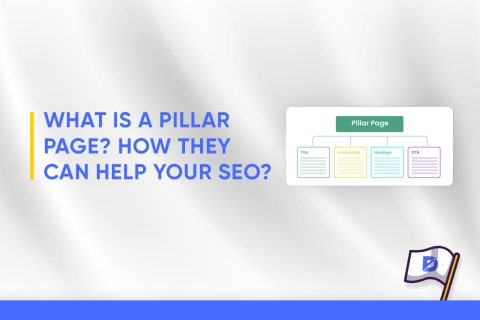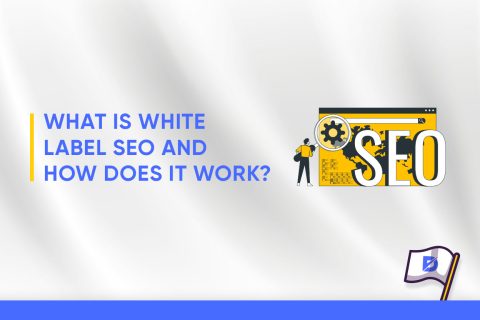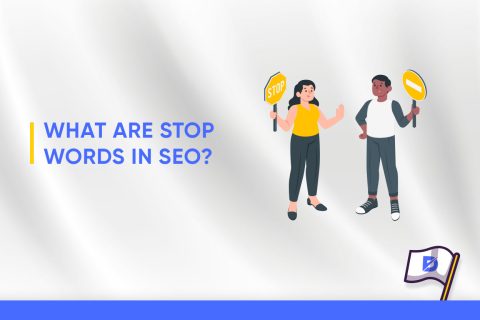Digital marketing depends on website optimization and online traffic that should result in generating desired clients. To be successful in the digital world, it is a well-known fact to every marketer and business owner that website optimization is the key. It should not be surprising to digital marketers that keeping their website secured means it aligns with SEO and should be looked after while optimizing the website. So, how are web security and SEO related?
Web Security Vs. Website Security
What Do We Mean by Website Security and Web Security? Before exploring more about web security and SEO, it is important to differentiate between web security and website security as they are not quite the same.
Web Security
Web security is essential for all organizations to protect their data, users, and information from theft or loss. It is also known as cybersecurity or internet security.
It, in short, refers to the practices, measures, and procedures companies use to protect their software, hardware, and/or data from online risks and threats. These threats include unauthorized access, data breaches, malware infections, denial-of-service attacks, and more. The primary goal of web security is to ensure the confidentiality, integrity, and availability of web resources and the sensitive information they handle.
Web security is a continuous process that requires vigilance, adaptation to emerging threats, and a combination of technical solutions and user awareness to maintain a secure online environment.
Website Security
Website security, on the other hand, is a much narrower approach. It refers to the measures and practices taken to protect a website from various cyber threats, attacks, and vulnerabilities that could compromise its integrity, availability, and the data it handles. Ensuring website security is essential to maintain user trust, protect sensitive information, and prevent unauthorized access or malicious activities.
Website security is an ongoing process that requires continuous attention and adaptation to the evolving landscape of cyber threats. Neglecting website security can lead to serious consequences, including data breaches, reputational damage, and legal liabilities. All this may lead to negatively affecting website optimization.
Both web security and website security are similar in aiming to provide security measures to protect an organization’s websites, applications, users, or data from cyberattacks and any online risks.
Here, we will discuss the relationship between website security and SEO.
Website Security Factors and Their Impact on SEO
As we define web and website security, we can tell they are crucial to user experience by protecting their personal information, data, and SEO.
The reason is that search engines, like Google, consider various aspects of website security when ranking pages in search results. In other words, they don’t offer users breached or unsecured websites.
Here are some key security factors and their impact on SEO:

SSL Certificate (HTTPS)
A few years back, Google declared its algorithm change that becomes more sensitive to websites with HTTPS over HTTP. After this declaration, companies improved their security and changed from HTTP to HTTPS.
But how does this affect SEO, and what is the difference between HTTP and HTTPS?
HTTP is the Hypertext Transfer Protocol that transfers data from a user’s computer or a website server. HTTPS refers to Hyper Text Transfer Protocol Secure, which functions similarly to HTTP but with an additional layer of security which is called Secure Socket Layer, better known as SSL Certificate, that allows the secure protocol to transfer data via TCP port 443 instead of transferring data via a standard port.
In other words, HTTPS tells the users that they can provide their information, data, and even sensitive information such as credit card details while knowing the website is highly secure.
Going back to the search engine algorithm, websites with HTTPS are more favored, and if other SEO factors have been followed and taken into consideration properly, these websites will rank higher than HTTP websites.
Adding to this, in modern search engine results pages, warnings will appear next to non-secure websites or HTTP websites. Thus, this discourages users from browsing these websites, affecting their overall traffic and optimization.
Malware and Virus Protection
Malware is specifically designed by hackers to harm, damage, or gain authorized access to a computer system. Therefore, a hacked website provides a negative customer experience that leads to losing clients’ trust in this company or its website’s credibility and reliability.
Additionally, search engines can detect if your site is compromised and may display warnings in search results, affecting your site’s credibility and SEO.
Another negative effect that malware can cause is blacklisting your website and removing it entirely from the search engine results pages will affect your website’s visibility and organic traffic.
Affecting your website ranking and crawlers’ ability to access and index your website’s content are also results of Malware attacks. Also, this affects SEO performance & efforts and impacts website visibility.
Since recovery from malware consumes time and resources, it is also advisable to do the following;

- Regularly scan your website for malware and viruses using security tools and services.
- Implement a Web Application Firewall (WAF) to protect your site from common online threats.
- Keep all software, including CMS, plugins, and themes, up to date to reduce vulnerabilities.
- Secure your website’s backend with strong authentication mechanisms.
- Monitor your website’s traffic and user behavior for unusual patterns that might indicate a security breach.
- Create and maintain regular backups to quickly restore your site in case of an attack.
Server Security
Ensuring your web server is properly configured and updated with the latest security patches helps prevent unauthorized access and potential attacks. A compromised server can lead to content injection, spam, and other malicious activities that negatively impact SEO.
Content Security Policy (CSP)
Implementing a Content Security Policy helps protect your site from cross-site scripting (XSS) and other code injection attacks. It specifies which content sources can be loaded, reducing the risk of malicious code execution and enhancing your site’s security posture.
Regular Software Updates
Keeping your content management system (CMS), plugins, and themes up to date is essential for security. Outdated software can have vulnerabilities that attackers can exploit. Regular updates help ensure your website remains secure and less susceptible to hacking.
Strong Authentication
Implementing strong authentication mechanisms, such as two-factor authentication (2FA), for accessing your website’s backend can prevent unauthorized access to your site’s administrative areas.
Regular Backups
Regularly backing up your website’s data and content is crucial in case of a security breach. Backups enable you to quickly restore your site to a previous state and minimize downtime.
User Data Protection
If your website collects user data, ensuring that you follow best practices for data protection, including compliance with relevant data protection regulations (e.g., GDPR), can enhance your site’s trustworthiness and positively impact SEO.
User Experience and Bounce Rate
A compromised website can lead to a poor user experience, including slow loading times, redirects to malicious sites, or unwanted pop-ups. Such experiences can increase your site’s bounce rate, negatively affecting SEO rankings.
Search Engine Trust
If search engines detect that your site is compromised, they may mark it as unsafe in search results or remove it altogether. This can significantly harm your SEO efforts and credibility.
In summary, website security is closely linked to SEO. A secure website protects your users and data and contributes to a positive user experience and search engine rankings. You can safeguard your website’s reputation and SEO performance by implementing strong security measures.
How Does a Secure Website Affect SEO Positively?
From the above, we concluded that the lack of security measures results badly in SEO. However, we will discuss how proper website security implementations can improve SEO.
Besides protecting your data and user’s data, strengthening your website improves your visibility as the following;
Being Online with Search Engines
As we mentioned earlier, transferring into HTTPS tells Google that your website has been aligned with its criteria, which boosts it to rank high.
Another search engine, Bing, has changed its algorithm to be aligned more with secured websites by stating that any website that only supports RC4 Cipher Suite has many risks and vulnerabilities. Therefore, these websites will not be part of their result pages.
That is why keeping your website updated in terms of security and keeping it under continuous maintenance and updates will guarantee ranking higher on many search engines because this shows your agreement to their conditions.
Connection Time Between Websites
The connection time between websites is crucial for digital marketing if you use social media platforms, such as Facebook, Instagram, etc., or Google Ads to promote your website. The higher the website security is, the shorter the connection time between the clients clicking on your link and landing on your website.
Connection Time within Your Site
Usually, a website consists of a main domain and several subdomains. For example, a blog post on a website may have a video explaining a certain part of the written content visually, which is part of a YouTube channel. So, by having improved security in all your subdomains displaying on your website, you are shortening the time it takes to load this video. Once again, high-security measures result in better user experience and higher rank in search results.
HTTPS for Linking
One of the optimization practices is the internal and external links you may add to your pages. Internal links refer to links between pages on your website. This practice improves crawling and reduces unsafe and risky connections to your site if your internal URLs are HTTPS.
External links or backlines are links from other websites that add more value to your website. Similarly, you need to link your website to HTTPS pages only. This way will boost your security and, thus, your organic traffic as you will rank higher.
What Are the Most Important Security Practices?
There are many practices companies should consider while building a new website, developing a current one, and enhancing their performance. To mention a few;

- Enhancing SSL certificate chain for quicker verification
- Enabling HTTP3 protocol support
- Minimizing exposure to insecure HTTP connections
- Adopting TLS 1.3 for improved security
In addition, continuous checks, testing, and being up to date with the recent movement in website surety is a must. The bad news here is that cyberattacks and hackers exist, and they are getting smarter day by day. So, to be ready to fight these risks and attacks, website security must be a major concern to all business owners and website developers. With open minds to new security procedures and measurements, we protect our data, information, user data, and above all, our high ranking to keep up with generating clients from organic search.
Final Thoughts about Web Security & SEO
From the above, we can tell that one of the main reasons digital marketers and business owners try to maintain a secure website, as we mentioned above, is the advantage of being aligned with website security regulations that will positively impact SEO, which is an essential practice companies do to ensure their website visibility to drive organic traffic. The importance of SEO lies in the ability to drive organic traffic that forms the target audience of each company. Therefore, it helps companies achieve their goal in the long term.
Therefore, we can conclude that SEO is crucial to digital marketing, and alongside a secure website, higher chances of reaching a wider audience and gaining their trust are there. It is, without a doubt, two sides of one coin.
Frequently Asked Questions About
Penetration testing involves ethical hackers attempting to exploit your website’s security vulnerabilities to identify weak points before malicious actors do. This helps you improve your security measures.
Use a secure payment gateway, encrypt payment data, implement strong user authentication, and comply with Payment Card Industry Data Security Standard (PCI DSS) requirements.
Secure coding practices involve writing code with security to prevent vulnerabilities like SQL injection, XSS, and others. It helps create a strong foundation for website security.
Have an incident response plan, isolate affected systems, assess the extent of the breach, notify affected users, fix vulnerabilities, and learn from the incident to prevent future breaches.
Implement strong password policies, use multi-factor authentication (MFA), and avoid storing plain-text passwords. Consider using OAuth or OpenID Connect for external authentication.





No comments to show.